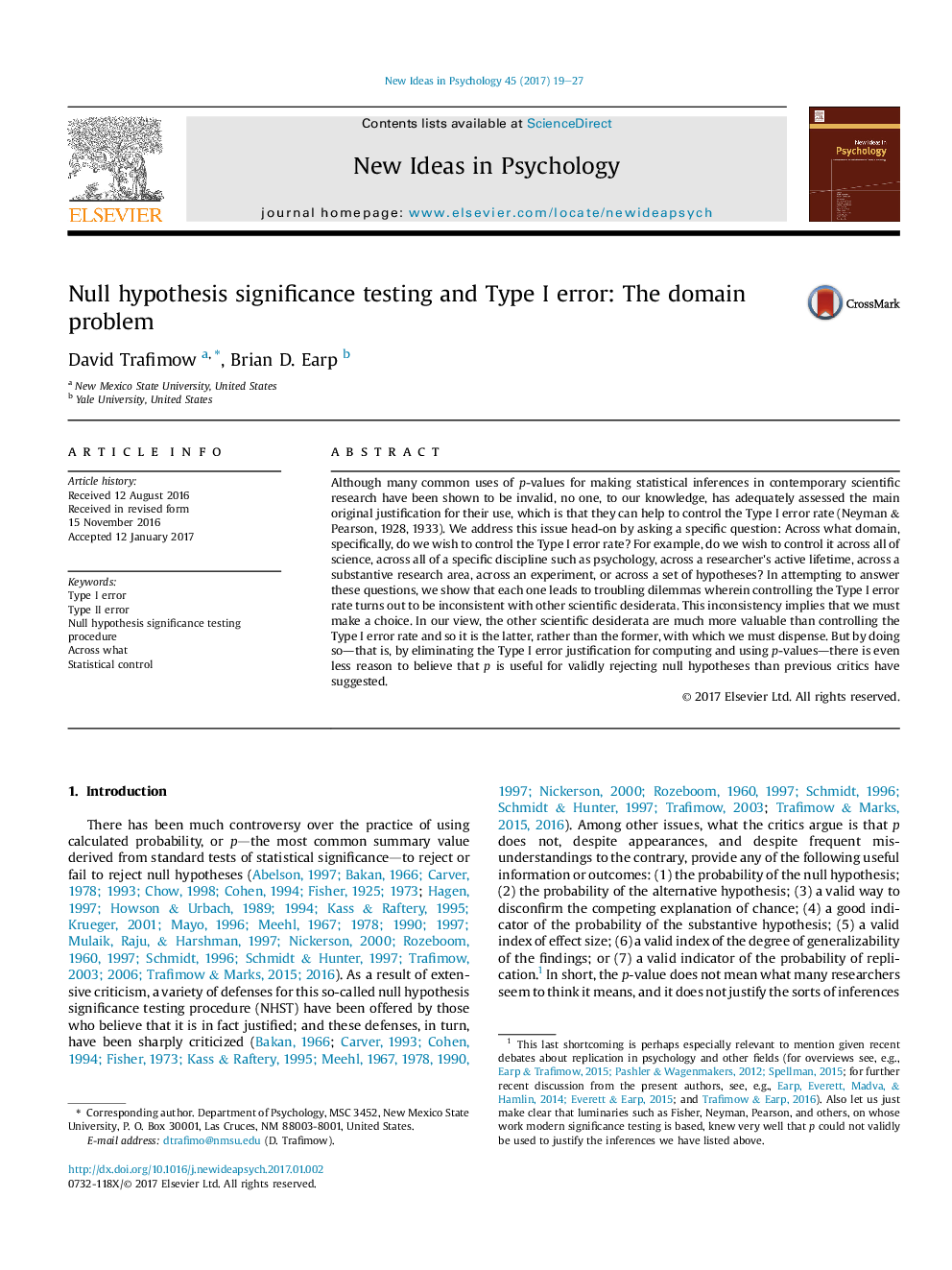| Article ID | Journal | Published Year | Pages | File Type |
|---|---|---|---|---|
| 4932980 | New Ideas in Psychology | 2017 | 9 Pages |
Abstract
Although many common uses of p-values for making statistical inferences in contemporary scientific research have been shown to be invalid, no one, to our knowledge, has adequately assessed the main original justification for their use, which is that they can help to control the Type I error rate (Neyman & Pearson, 1928, 1933). We address this issue head-on by asking a specific question: Across what domain, specifically, do we wish to control the Type I error rate? For example, do we wish to control it across all of science, across all of a specific discipline such as psychology, across a researcher's active lifetime, across a substantive research area, across an experiment, or across a set of hypotheses? In attempting to answer these questions, we show that each one leads to troubling dilemmas wherein controlling the Type I error rate turns out to be inconsistent with other scientific desiderata. This inconsistency implies that we must make a choice. In our view, the other scientific desiderata are much more valuable than controlling the Type I error rate and so it is the latter, rather than the former, with which we must dispense. But by doing so-that is, by eliminating the Type I error justification for computing and using p-values-there is even less reason to believe that p is useful for validly rejecting null hypotheses than previous critics have suggested.
Related Topics
Social Sciences and Humanities
Psychology
Developmental and Educational Psychology
Authors
David Trafimow, Brian D. Earp,
